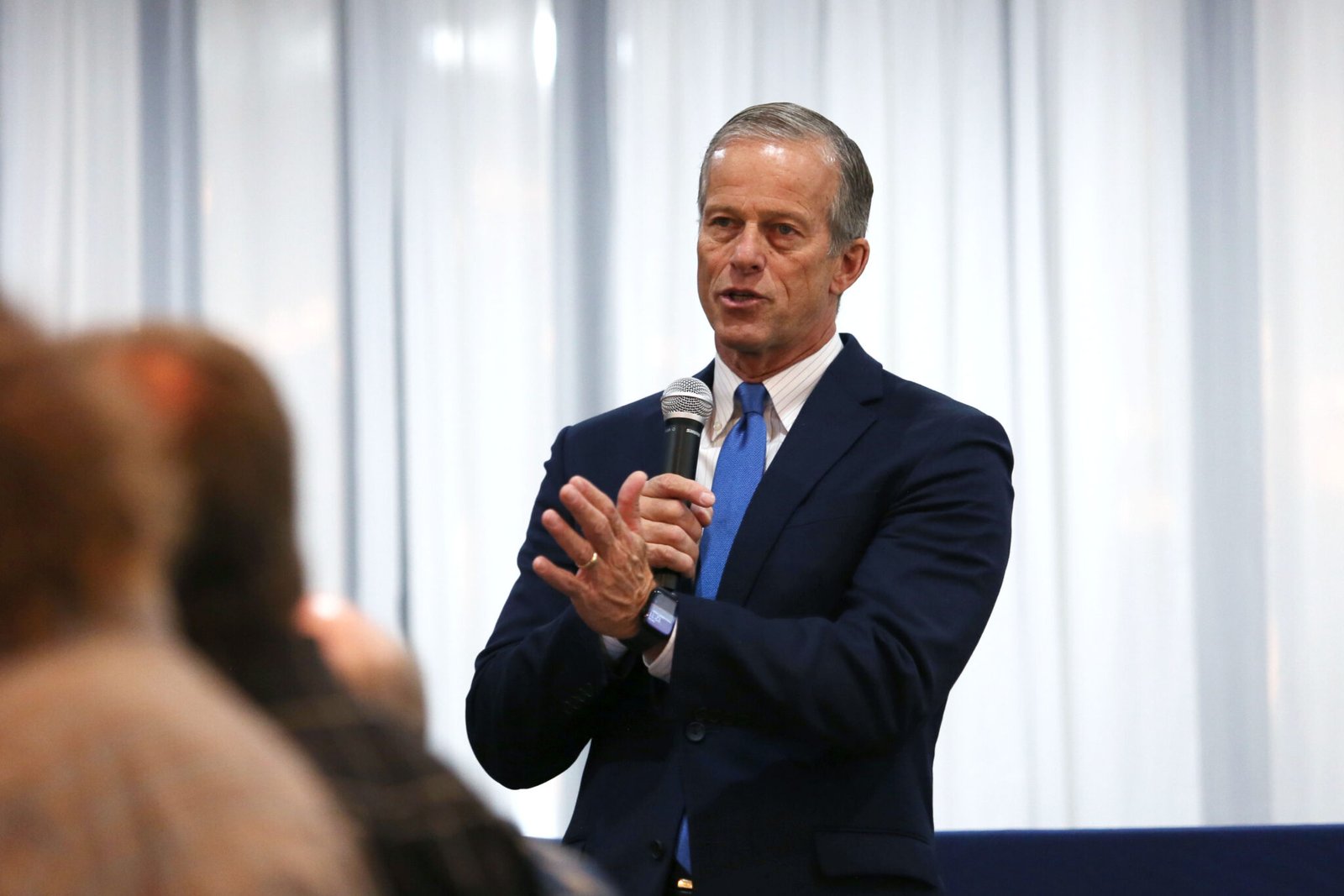Donald Trump
Congress May Need to Curb Presidential Power, Warns Thune

BRANDON, SOUTH DAKOTA — Incoming U.S. Senate Majority Leader John Thune, R-South Dakota, expressed his readiness to challenge any attempts by President-elect Donald Trump to expand executive influence over federal spending during a discussion on Tuesday.
“Every president will seek to maximize their authority through executive action,” Thune stated. “Congress may need to impose checks to maintain fiscal responsibility.” The senator addressed the Brandon Valley Area Chamber of Commerce and engaged with reporters on various topics.
Thune emphasized the alignment between Republican objectives and Trump’s policy goals. “Our priorities largely coincide; the methods to achieve them may differ,” he added. Meanwhile, Trump’s choice for budget director, Russ Vought, aims for a significant augmentation of presidential fiscal authority as outlined in Project 2025, a document distributed by the Heritage Foundation.
According to Vought, “The President should utilize every possible tool to enforce fiscal discipline. Anything less is failure.” Trump is also seeking greater control over the Cabinet appointment process, urging the Senate to recess early next year, thereby circumventing standard confirmation protocols.
Thune announced plans to commence committee hearings on Cabinet nominees as soon as Congress convenes on January 3, 2025. This proactive approach aims to expedite the vetting process prior to Trump’s inauguration on January 20.
“Although committees cannot finalize nominations until the President is sworn in, they can conduct hearings in advance,” Thune specified. He remarked on the importance of a thorough and fair vetting process, emphasizing that nominees deserve scrutiny regarding their qualifications for crucial roles.
The senator indicated that recess appointments remain a possibility should Democrats obstruct the Senate’s confirmation process, especially for nominees with bipartisan support. Thune detailed the key Republican priorities for the upcoming congressional session, which include extending the 2017 tax cuts and enhancing border security.
Thune plans to draft a budget reconciliation resolution aimed at prolonging the benefits of the 2017 Tax Cuts and Jobs Act, set to expire at the end of 2025. This legislative strategy allows tax and spending measures to pass with a simple majority of 51 votes, rather than the usual 60 required for most Senate legislation. With Republicans holding 53 seats in the new Senate and controlling the House, Thune underscored the implications of failing to extend these cuts, which could result in a $4 trillion tax increase.


















